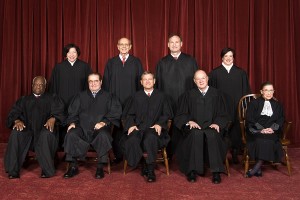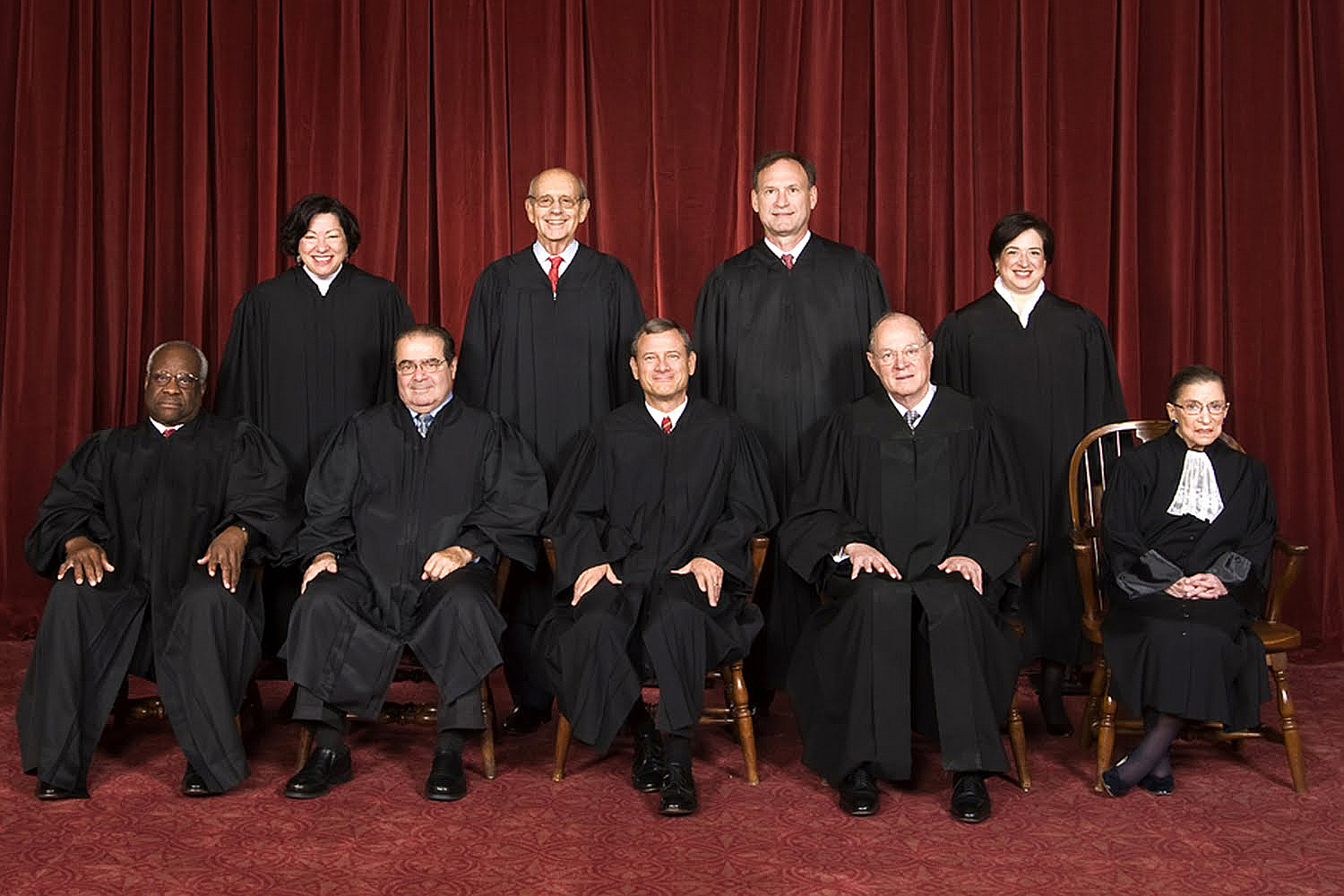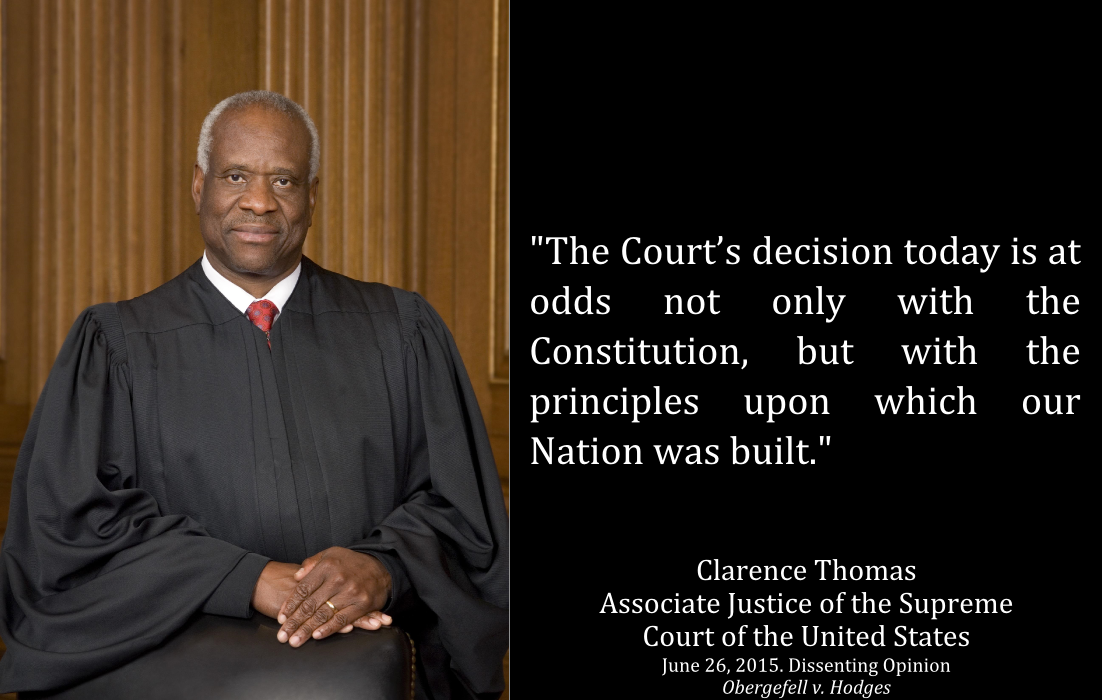 Earlier this week we learned the U.S. Supreme Court will not hear several appeals over lower court rulings that struck state laws defining marriage as the union of one man to one woman.
Earlier this week we learned the U.S. Supreme Court will not hear several appeals over lower court rulings that struck state laws defining marriage as the union of one man to one woman.
This was a surprising move by the court. And while it is not the “victory” many on the Left claim it is–there are still other appeals pending, so our justices will not be able to dodge the issue forever–it does raise the question exactly why the U.S. Supreme Court is running away from the marriage debate at the moment.
In order for an appeal to brought up before the U.S. Supreme Court, at least four of the court’s nine justices must vote to hear it. The fact that these appeals concerning marriage will not be heard means that no more than three justices wanted to hear the cases–and it’s possible that the court decided unanimously to ignore the appeals. Depending on who you ask, many people agree there are three or four “conservative” justices on the court: Associate Justices Scalia, Thomas, and Alito and Chief Justice Roberts. Since it only takes four votes to bring an appeal before the court, presumably at least one (maybe more) of these four justices did not want the marriage issue brought up. Why would they do that?
It’s just speculation on my part, but the answer may lie in Associate Justice Scalia’s dissenting opinion from the 2013 United States v. Windsor ruling that struck part of the federal Defense of Marriage Act. In his dissent, Justice Scalia wrote,
“It takes real cheek for today’s majority to assure us, as it is going out the door, that a constitutional requirement to give formal recognition to same-sex marriage is not at issue here—when what has preceded that assurance is a lecture on how superior the majority’s moral judgment in favor of same-sex marriage is to the Congress’s hateful moral judgment against it. I promise you this: The only thing that will ‘confine’ the Court’s holding is its sense of what it can get away with.”
Elsewhere in his dissent Justice Scalia speculated that the court was reluctant to weigh in on state laws concerning marriage–hence why the court was careful to skirt the issue in its ruling on Windsor. In a nutshell, Justice Scalia argues that the majority of the U.S. Supreme Court wish they could legalize same-sex marriage across the board, but do not feel they can “get away with” doing so–at least for now.
That might explain why the court’s more liberal justices do not want to weigh in on the marriage debate: They know there would be powerful repercussions if they obliterated state laws regulating marriage much as Roe v. Wade did to state laws regulating abortion. But what about the more conservative justices? Why wouldn’t they want the court to take up the issue?
My guess is some of them may believe that if push came to shove, the court would strike state laws concerning marriage nationwide, and they are trying to avoid such a ruling. A U.S. Supreme Court ruling to that effect not only would legalize same-sex marriage in all fifty states. It would also open the door for polygamists and others to sue for “marriage equality.” It would move the marriage debate from redefining marriage to “undefining” it altogether–making marriage in America completely without definition. The court may not believe it can get away with a ruling like that, but if backed into a corner it might try to anyway.
As we wrote earlier this week, by ignoring the appeals concerning state marriage laws, the U.S. Supreme Court is simply delaying a decision. The court or Congress–one or the other–will have to weigh in on this issue at some point. And while many are betting on same-sex marriage being legalized across the board, I am not. Thirty years ago abortion on demand and without apology was a forgone conclusion in the minds of many. However, abortion advocates’ high water mark turned out to be during the Clinton Presidency two decades ago. Abortion has been on the decline both in numbers and in public opinion polling ever since. Few at the time would have believed that would ever be possible, but that’s what we have seen.
No issue is a forgone conclusion. U.S. Supreme Court justices on both sides appear to be dodging the marriage debate in order to buy time. The liberal justices are counting on more public support in the future; the conservative justices are counting on the opposite.
That the court will one day have to hear a case concerning same-sex marriage probably is inevitable. Its decision on that case, however, is anything but.





John Howard
John Howard